.png)
.png)
- Building a self-hosted CI/CD pipeline for automated test execution
- Implementing scheduled and on-demand testing, running automated test suites daily to detect flaky issues (crashes, UI mismatch, performance bottlenecks)
- Automating test result reporting by pushing real-time test logs and failure insights to Slack and a monitoring dashboard.
GET mobile App team WHO struggle with inconsistent app behavior, redundant API calls, and undetected crashes across mobile and web platforms TO automate detection and improve stability BY building a self-hosted CI/CD pipeline with scheduled tests, API monitoring, and real-time Slack reporting.
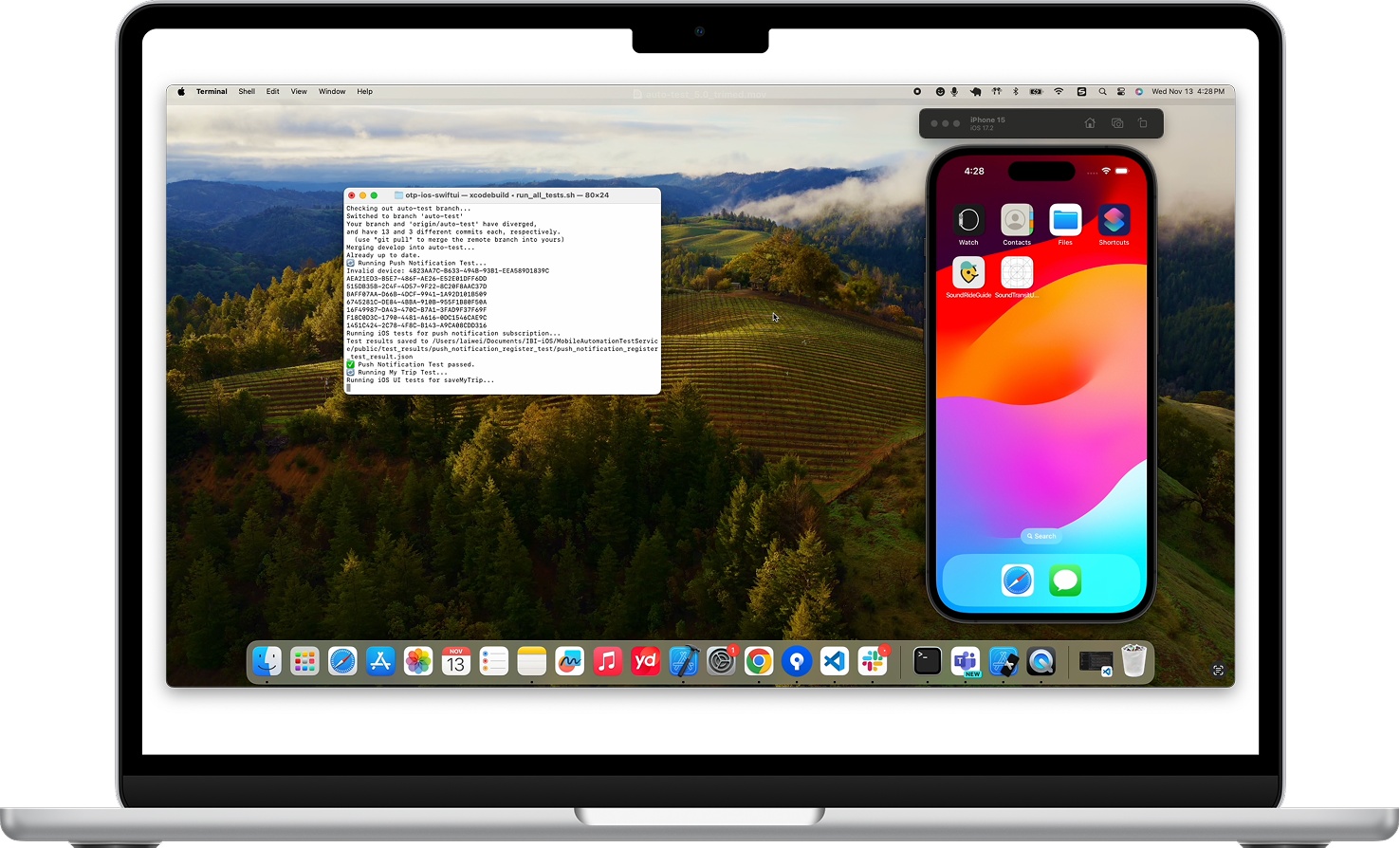
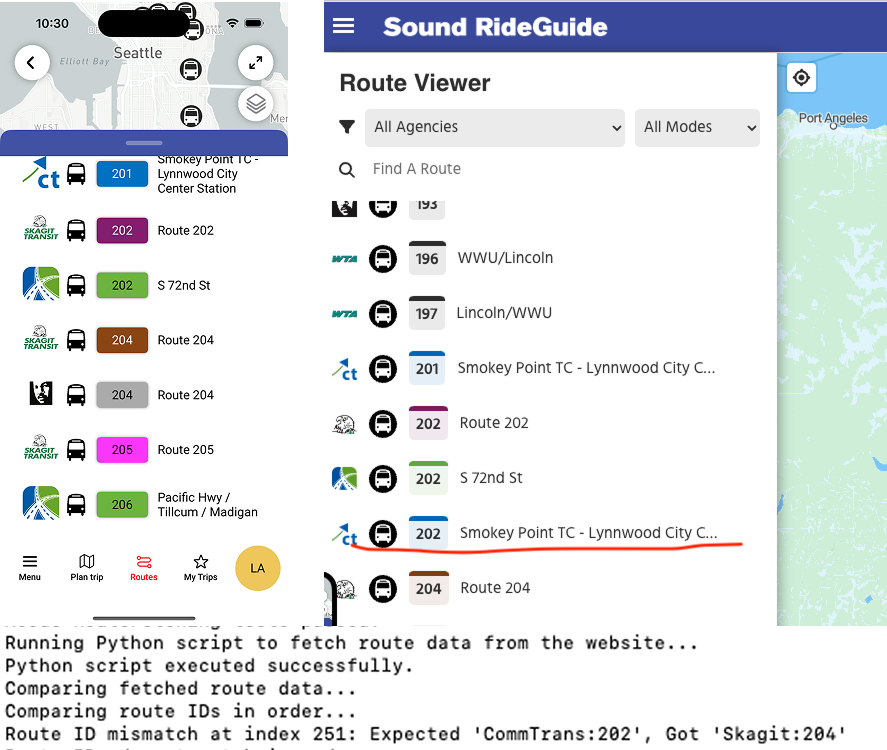

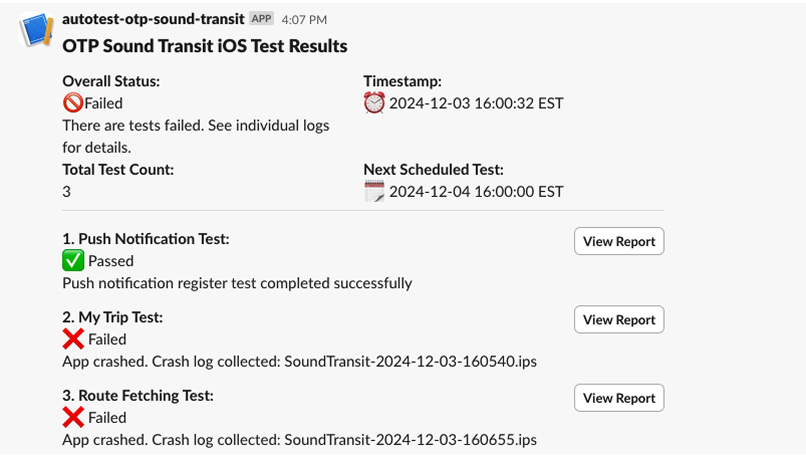
.png)
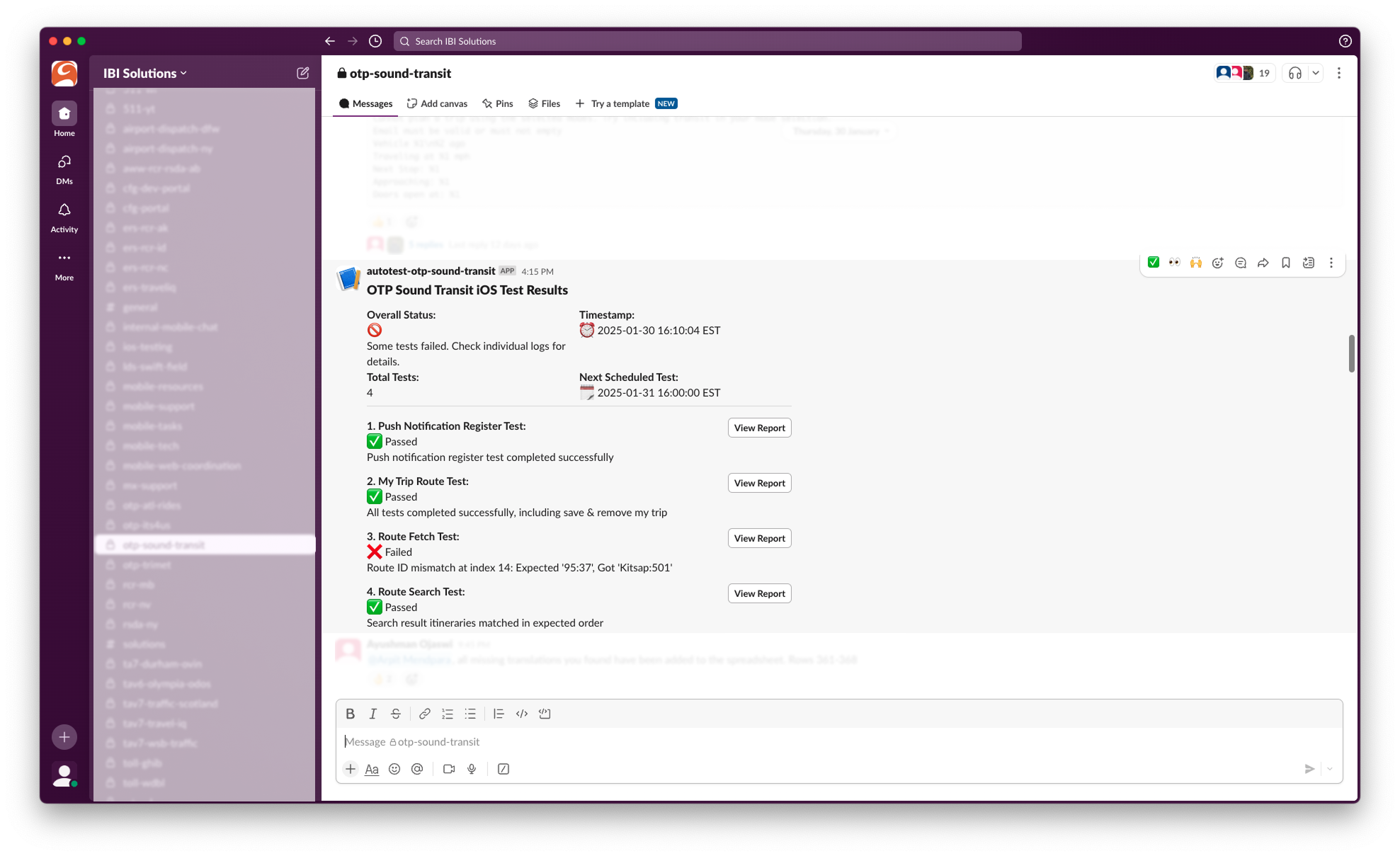
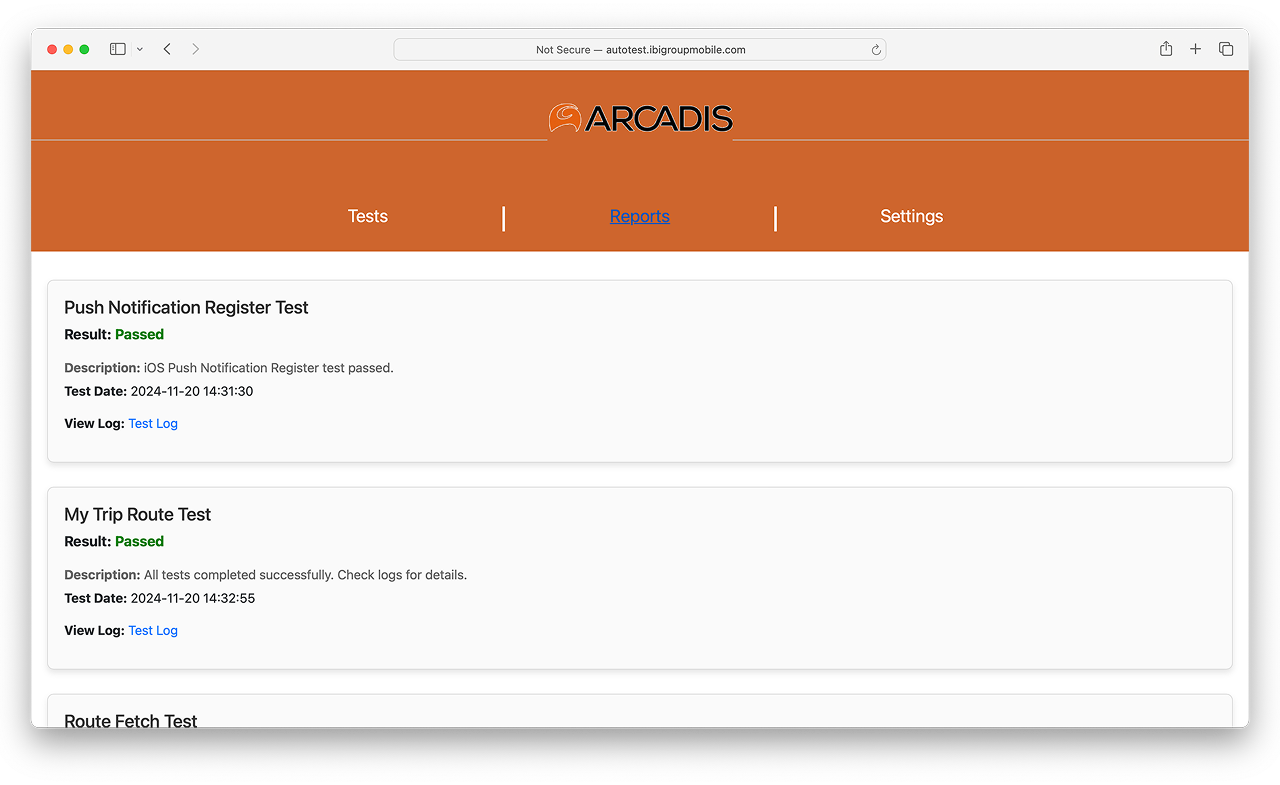
Multi-platform products often face significant consistency challenges, especially in fast-paced development cycles where the scope continuously expands. As manual testing covered fewer cases over time, the need for automated testing became increasingly critical. We built the entire DevOps automation framework from scratch, implementing a scalable auto-testing system that reduced manual testing efforts by 60%, improved release efficiency by 40%, and ensured greater consistency across platforms. Through this initiative, we significantly enhanced the Sound Transit mobile app’s reliability, robustness, and development efficiency, establishing a structured CI/CD pipeline that streamlined testing, reduced regression risks, and accelerated deployment cycles.